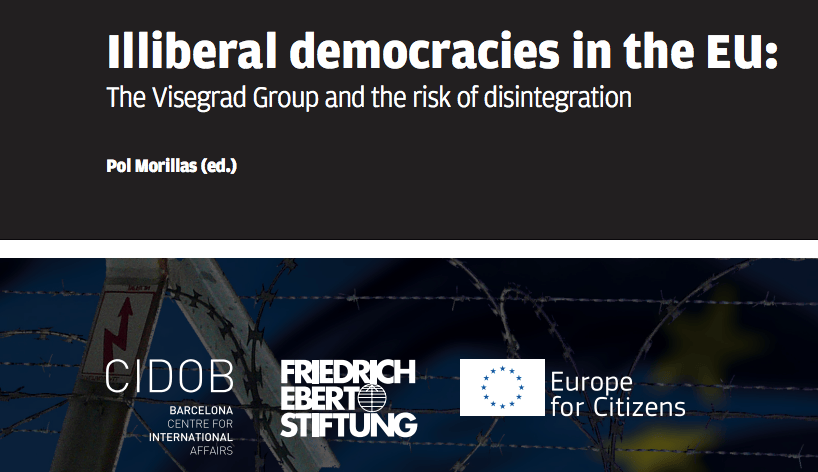Central Europe and the rise of nationalism

Náš Michal Vít přispěl k publikaci Barcelona Centre for International Affairs 's názvem Illiberal Democracies in the EU: the Visegrad Group and the Risk of Disintegration. Jeho kapitola se zaměřuje na širší kontext politického rozvoje regionu zemí V4, a to především České republiky, ve světle migrační krize roku 2015 a 2016.
- Known as the Visegrad Group, or V4, the alliance of the Czech Republic, Hungary, Poland and Slovakia was formed in 1993, with all countries accessing the European Union nearly a decade later, in 2004. In recent years, these four countries have become an area of increasing political concern and analysis, as their leaders have moved towards a more Eurosceptic stance, widening the so-called east-west divide in the EU. The V4 countries, particularly Poland and Hungary, have largely shifted to self-described “illiberal democracies” that mark a turn away from political liberalism, with some countries consolidating extraordinary government prerogatives and limiting constitutional provisions that once nurtured an environment promoting the rule of law and a free and open society. These countries’ disillusionment over the handling of recent crises, most notably the refugee crisis, has created a backlash in which the V4 is challenging the decisions made in Brussels while at the same time still benefiting greatly from EU membership, particularly through structural and cohesion funds.
This paper deals with the broader context of political development of the V4 region over the past decade and in particular the Czech Republic in the light of the immigration crisis of 2015 and 2016. The main point is to describe the interaction between European politics, domestic politics and the perception of EU integration held by political parties in the Czech Republic. To do so, the paper understands EU membership as a space in which political parties are influenced by the norms and procedures of the EU political arena formed of the EU institutions and European political parties. National political parties are socialised into accepting the norms and procedures of this EU space, which is supportive of deeper EU integration. As a consequence, parties transform this influence into election manifestos. Therefore, the development of the interaction between European politics and domestic politics shows the lack of a new post-accession vision for the integrated EU and a broad shift from EU-supportive policies towards national-oriented ones when analysing the V4 region.
Kapitolu (v anglickém jazyce) si můžete stáhnout prostřednictvím tlačítka PDF napravo a celá publikace je dostupná na webových stránkách CIDOB.




